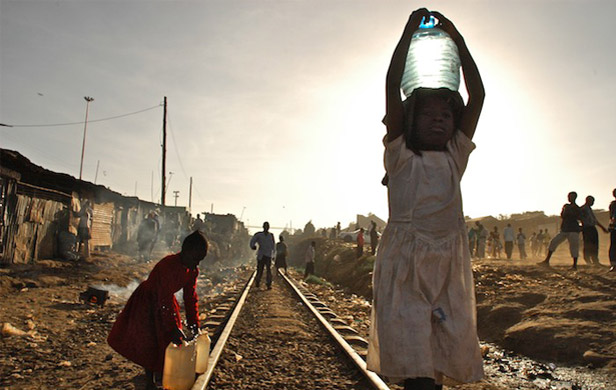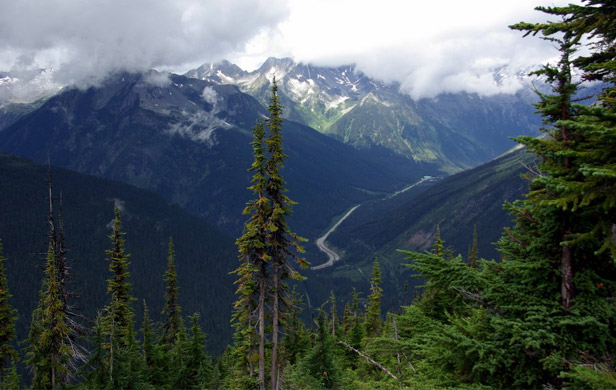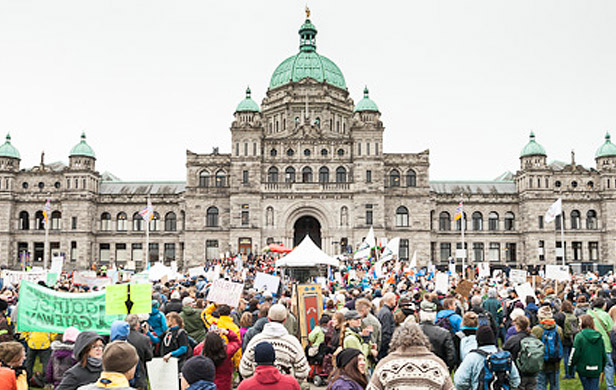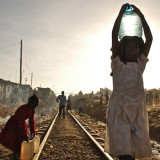
The World Health Organization (WHO) estimates that human-caused climate change is already responsible for 150,000 deaths annually. If we continue our current trajectories of “business as usual” as our response to climate change, the WHO expects that between 2030 and 2050 climate change will cause approximately 250,000 additional deaths per year.
According to the WHO, the yearly death rate will include, “38 000 due to heat exposure in elderly people, 48 000 due to diarrhoea, 60 000 due to malaria, and 95 000 due to childhood under nutrition.”
Once “tipping points” occur, non-linear changes will emerge, and the death toll will be much higher.
As author David Ray Griffin demonstrates in his book, Unprecedented: Can Civilization Survive The CO2 Crisis?, we are facing a constellation of unprecedented, intersecting threats that are leading humanity to increasingly severe catastrophes, and possibly even extinction.
The unprecedented, lethal threats identified by Griffin are these:
- Extreme weather
- Heat waves
- Droughts and wild fires
- Storms
- Sea level rise
- Fresh water shortage
- Climate refugees
- Climate wars
- Ecosystem collapse
- Extinction
- Food shortage
Reservoirs in the sky

A closer examination of just one of these threats shows how they are inter-related:
Author Lester Brown explains in “Rising Temperatures Melting Away Global Food Security” that we are losing our “Reservoirs In The Sky” – glaciers and snowpack – and that these reservoirs are melting in all the world’s major mountain ranges.
Melting glaciers and snowpack deliver less water for drinking and agriculture. Once these “reservoirs in the sky” – also called “natural water towers” and “frozen water towers”- are degraded and disappear, food scarcity and drought impacts are amplified. In the winter of 2015, for example, California’s Sierra Nevada snowpack was measured at 25% of its average depth.
“Deglaciation” also contributes to sea level rise and regional hydrological changes. In Western Canada and elsewhere, for example, it impacts freshwater fisheries; once the glaciers are gone, the fisheries will become extinct.
Disappearing water drives instability
Since deglaciation impacts food and water security, it also contributes to desertification, and this in turn creates “climate refugees”, as people are forced to leave for more habitable locations. A report by the Environmental Justice Foundation claims that, “on average, 27 million people are displaced by climate and weather-related disasters each year.”
Increased scarcities of food and water, and the growing displacement of peoples due to climate change – and de-glaciation – will likely be casual factors of so-called “water wars” as well.
Radical change: our only hope

Our collective response to catastrophic, human-caused climate change, is inadequate on many levels. Griffin argues that our failures and challenges are also “unprecedented”. He shows that the status quo/business-as-usual approach to climate change will accelerate catastrophic consequences, that a “wait and see” attitude would be even more cataclysmic, and that the only reasonable approach is radical change.
Radical change means full scale societal mobilization and the rapid decarbonisation of the economy, all with a view to reducing the global temperature increase by less than 2 degrees Celsius relative to pre-industrial levels.
The stakes couldn’t be higher, since we literally face the real prospect of human extinction if we do not radically change our approach now.
Critical failures that must be addressed
Griffin identifies the following unprecedented challenges and failures that are currently preventing radical change:
- Climate change denial
- Media failure
- Political failure
- Moral challenges
- Religious challenges
- Economic challenges
As with the iteration of unprecedented lethal threats, the aforementioned list of challenges and failures share intersecting trajectories as they meet, overlap, and create common ground. Consequently, a closer examination of one failure sheds light with others as well.
The industry of Climate Change/Global Warming Denial, for example, is closely linked to, and sometimes a causative element of, the other challenges and failures.
The denial industry
Despite the fact that the scientific debate is closed, and the scientific consensus is that humans cause global warming, the Climate Change Denial Industry spends vast quantities of money to promote unreasonable doubt about this scientific fact.
ExxonMobil, for example, launders money through organizations, foundations, think tanks etc. to create unreasonable doubt about human-caused global warming.
Increasingly, money is being laundered through Donors Trust. A Greenpeace analysis reveals that Donors Trust has laundered $146 million in climate denial funding from 2002 to 2011.
False Balance
Corporate media also amplifies disinformation. One particularly effective strategy is a technique called “false balance.” Editors will “balance” science-based global warming articles with articles that deny global warming, with the effect that readers become confused and doubt the scientific reality of human-caused global warming.
Politicians invariably exploit the fabricated confusion and endorse policies that serve the narrow interests of Big Oil. An extreme example of this is the Tea Party movement.
This seemingly grassroots movement endorses policies that align with Big Oil interests – low taxation, high profits, de-regulation. Evidence suggests, moreover, that it was created with a view to make it appear like a grassroots movement, when it was actually fabricated by Big Oil to serve Big Profits rather than the interests of those who support the party. The term used to describe the process is “Astroturfing” (i.e. fake grass roots).
In terms of morality and religious propriety, the use of deceit and subversion to advance a civilization-killing agenda is repulsive.
It’s also bad for the economy.
False economy
A 2011 article by Joe Romm, IEA’s Bombshell Warning: We’re Headed Toward 11°F Global Warming and “Delaying Action Is a False Economy” cites the International Energy Agency’s (IEA) assessment of the economic cost of delaying action.
[quote]Delaying action is a false economy: for every $1 of investment in cleaner technology that is avoided in the power sector before 2020, an additional $4.30 would need to be spent after 2020 to compensate for the increased emissions.[/quote]
What is to be done
The complexities of “What is to be done?” to confront our dire circumstances can be reduced to three momentous actions.
First, we need a mass mobilization of people prepared to respond to the global warming emergency. Second, we need to transition immediately and completely to clean energy. And finally, we need to abolish dirty energy.
David Ray Griffin’s extraordinarily comprehensive and well-researched book, Unprecedented, should serve as a foundational guide for our needed mobilization.
This article first appeared on Whatsupic


If the climate doesn’t get us the environmental destruction of our planet will. Oceans, lakes, rivers and streams plus soil and water aquifers. Nothing is spared. We are even knowingly triggering earthquakes but we press on. Not much hope if we’re honest with one another. Greed will bring us down.
Can civilization survive unprecedented climate crisis?
Why don’t you ask the global military forces who are manipulating the weather?
I am more afraid of cooling. More people freeze than die of heat stroke. Growing seasons are shorter and dryer during cold periods and ill fed people are more prone to disease. Many astrophysicists predict another prolonged cooling period is due. Judging from the ice core evidence, warming and cooling alternate on a fairly regular basis. I am amazed that the usually thorough Dr. Griffin seems to be unaware of this.
The commentary and critique by MoS is on target if understandably difficult for all of us to accept and act upon. To rephrase, there are many good points in the article, in the way of analysis and solutions that mitigate climate change and its ramifications, but is it all to the end of preserving the model of civilization as we know it? Or is civilization – as conceived by the author and many others – the problem? And what exactly is “civilization” in our current, globalized way of thinking? Is central London rural India or Alberta, Canada. It seems to me that our current trajectories of “development”, that includes how we set standards for good health and good wealth, are based on 500 years of colonialism, of which the globalization mantra is only the latest phase both as economic reality and mode of public persuasion. Mind you, I am not speaking first and foremost about putting races, empires or even corporations on trial as a quick solution. Instead, as MoS states, the changes must be more radical. The models for how we live where we live and not only as part of a global community must be addressed earnestly and urgently.
Global warming isn’t the disease. It’s a symptom of the disease. Efforts focused on the symptom will be futile and potentially lethal over the course of this century.
A transition to alternate, clean energy won’t arrest the warming. With what’s in the atmosphere as of today, we’ve already locked in 1.5C of warming over the next 150-years. Many scientists are no longer convinced even that is survivable.
This clean energy transition will do nothing about tipping points we may have already crossed. It will do nothing to address our chronic overpopulation. It will do nothing to reverse our utter dependency on consuming our planet’s natural resources in volumes already vastly in excess of natural replenishment rates. It will do nothing to break our slavish and ultimately lethal embrace of perpetual, exponential growth. Did I mention the knock on effects of the massive loss of biodiversity we’ve already triggered or the mass extinction threat presented by ocean acidification?
The three actions you advocate are all vital but, without a great deal more, they’re pointless. If we want to cure the disease instead of merely easing the symptoms we have to abandon all of our institutions, customs and our organizational models (economic, social, political) that have placed mankind so far beyond the limits of our very finite environment, our one and only biosphere, Spaceship Earth. Even if there is sufficient time remaining to seize that opportunity, where do we find the collective will to so radically transform our lives?